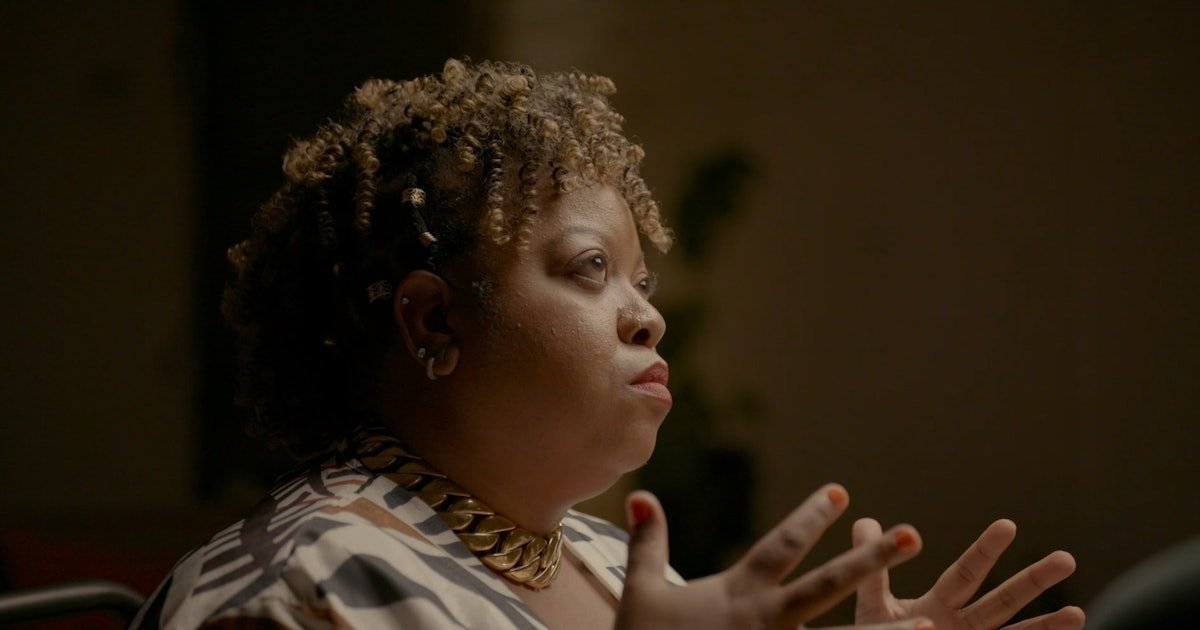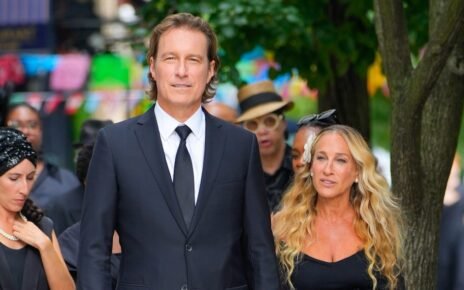You might expect a movie about psychics to either show off uncanny fortune-telling abilities or maybe debunk the skills of people who claim to be clairvoyant. Not so with Look Into My Eyes, an entrancing new A24 documentary that visits a diverse set of psychics and their clients in New York City. Rather than sensationalize the material, director Lana Wilson dwells on how her subjects feel, revealing the extraordinary vulnerability and genuine comfort that develops within each of their sessions (as well as some moments that might raise a smile). This attunement is second nature to Wilson, a documentary veteran whose subjects have included abortion doctors (After Tiller), a punk-turned-Zen Buddhist priest (The Departure), Taylor Swift (Miss Americana) and Brooke Shields (Pretty Baby). For the release of Look Into My Eyes, Wilson spoke with W about what truth and healing mean, lessons from filming celebrities, and the Japanese film that inspired her special camerawork.
Did you decide early on that you wouldn’t judge what the psychics said?
That was my framework pretty quickly. It wasn’t about if I believed in what this woman was saying to me or not. That had little to do with my emotional experience of spending five minutes with her and how I felt afterward. I noticed that about myself, as a lifelong skeptic. There’s a reason that the psychic tradition has existed around the world for millions of years, way before therapy. And it’s not because psychics have accurately predicted everything. Everyone has their own personal belief about the afterlife. Is the ghost of your dead grandmother in the room? Is that real or not? Is she physically, provably in the room? If you’re remembering her with someone, she is in the room, in a way. To reduce it to real or not real takes all of the meaningful aspects of what was going on in these exchanges.
A session between psychic and client.
A24
How did you pick the psychics?
We got readings all over New York City. I was honestly drawn towards people who I liked being around and who tended to remind me a little of myself. And people who love movies! We also found the clients ourselves. We set up tables outdoors that said “free psychic readings.”
I love the variety of requests—and you start with an ER doctor, which felt surprising.
There’s nothing that can really help you cope with the reality of watching someone die in front of you. I think this is why she was talking to the psychic. She tells this story [about a young patient who died], but then ends it with this question: how is she? This doctor who’s had 30 years of ER experience! That was so startling.
How did you find the best way to capture these sessions?
I did a couple of sessions with friends of mine, and the first [camera] test had way too much equipment and lights and felt overly produced. The footage felt like I was watching the Netflix show Dating Around. Then I was like, “Let’s try hand-held camera.” I found in psychic sessions, the handheld camera felt incredibly performative and self–conscious. Then I started to think about Afterlife, the Hirokazu Kore-eda movie, which I really love.
Great movie!
The interviews with the people in the afterlife are locked-down shots [i.e., stationary]. I thought that [in the psychic sessions] it had to be a tripod camera, because of the neutrality that has. There’s no fake realism. I kind of alarmed my producer by making a 30-page PDF of stills and analysis [about Afterlife]. Then the sessions became about making it feel like there’s no glass between you and the person. I decided that the camera should be unmanned because I tried a session with someone there and then with no one there, and it was just totally different! There is a second camera, but that was operated by someone who was just out of the client’s eyeline.
Eugene in a moment from Look Into My Eyes.
A24
Was there any particular story that really moved you?
So many! One of the things that affected me the most was filming with Eugene [one of the psychics] in his apartment when he started talking about the movie Central Station. Out of nowhere, he says, “I lost my brother.” For me, that was such a wake-up call to the role that art has in our lives. I really relate to Eugene.
What wisdom did you take from making movies about mega-celebrities like Taylor Swift and Brooke Shields prior to this?
There’s no difference in working with subjects if they’re famous or not. It’s always the same process. They come to it with a bit of curiosity—I think Taylor came to the project certainly with this. She and Brooke Shields had in common a lot of people looking at them and evaluating and judging, but very few people actually witnessing them in a deeper way. So if you, a stranger, an outsider, are going to come in, witness me, and then hold up a mirror and tell me a story of what you see reflected there—it’s terrifying to do that. But I think the reason that subjects want to do it is because they’re curious. What will I see? What will I be told? And that’s not unlike why a client walks in to see a psychic.
This article was originally published on




